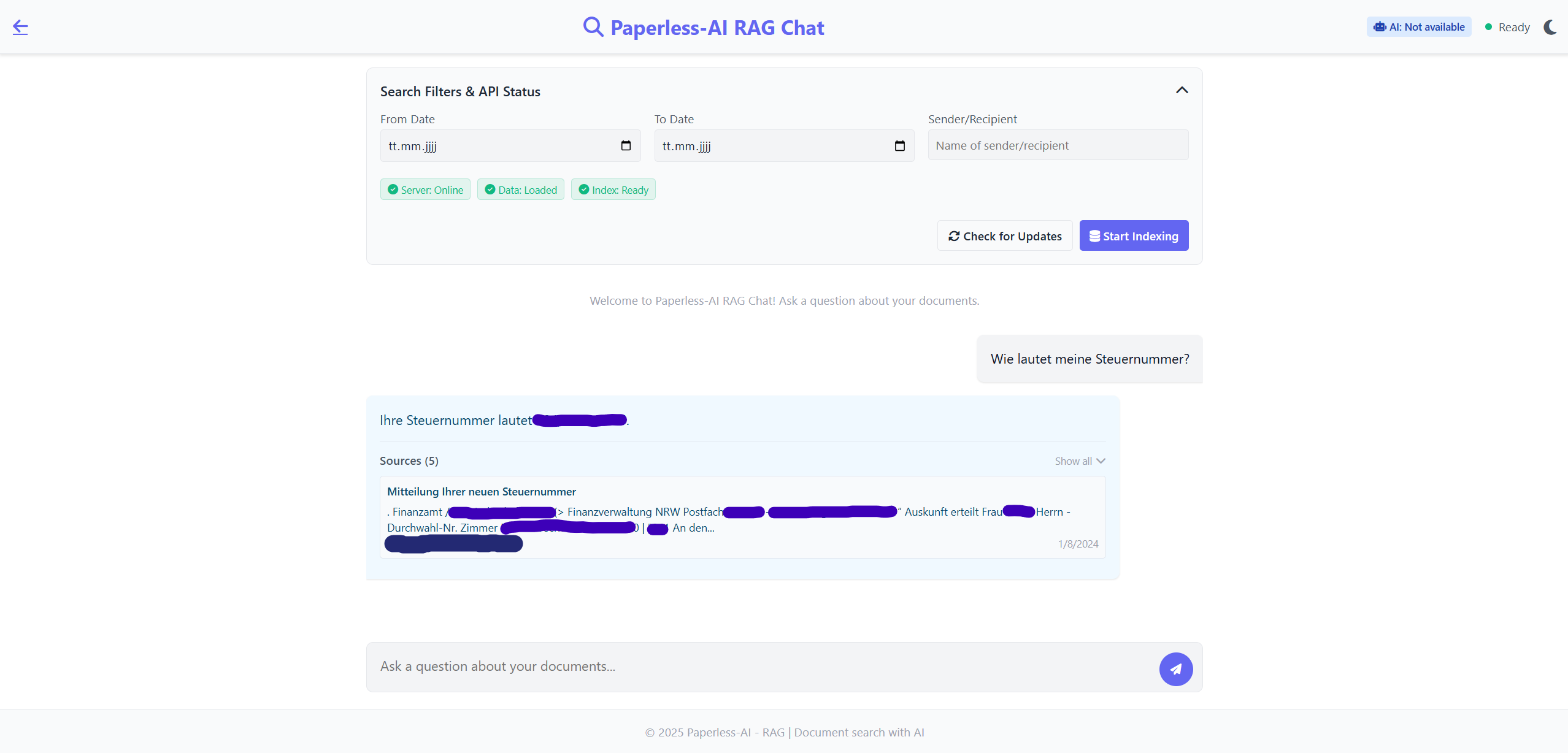Paperless-AI is an AI-powered extension for Paperless-ngx that brings automatic document classification, smart tagging, and semantic search using OpenAI-compatible APIs and Ollama.
It enables fully automated document workflows, contextual chat, and powerful customization — all via an intuitive web interface.
💡 Just ask:
“When did I sign my rental agreement?”
“What was the amount of the last electricity bill?”
“Which documents mention my health insurance?”
Powered by Retrieval-Augmented Generation (RAG), you can now search semantically across your full archive and get precise, natural language answers.
- Detects new documents in Paperless-ngx automatically
- Analyzes content using OpenAI API, Ollama, and other compatible backends
- Assigns title, tags, document type, and correspondent
- Built-in support for:
- Ollama (Mistral, Llama, Phi-3, Gemma-2)
- OpenAI
- DeepSeek.ai
- OpenRouter.ai
- Perplexity.ai
- Together.ai
- LiteLLM
- VLLM
- Fastchat
- Gemini (Google)
- ...and more!
- Natural language document search and Q&A
- Understands full document context (not just keywords)
- Semantic memory powered by your own data
- Fast, intelligent, privacy-friendly document queries

- Web interface for manual AI tagging
- Useful when reviewing sensitive documents
- Accessible via
/manual
- Define rules to limit which documents are processed
- Disable prompts and apply tags automatically
- Set custom output tags for tracked classification

⚠️ First-time install: Restart the container after completing setup (API keys, preferences) to build RAG index.
🔁 Not required for updates.
- Health monitoring and auto-restart
- Persistent volumes and graceful shutdown
- Works out of the box with minimal setup
# Install dependencies
npm install
# Start development/test mode
npm run test- ✅ Multi-AI model support
- ✅ Multilingual document analysis
- ✅ Tag rules and filters
- ✅ Integrated document chat with RAG
- ✅ Responsive web interface
We welcome PRs and contributions!
# Fork, clone, then:
git checkout -b feature/YourFeature
# After changes:
git commit -m "Add YourFeature"
git push origin feature/YourFeatureThen open a Pull Request via GitHub.
This project is licensed under the MIT License. See LICENSE for details.







